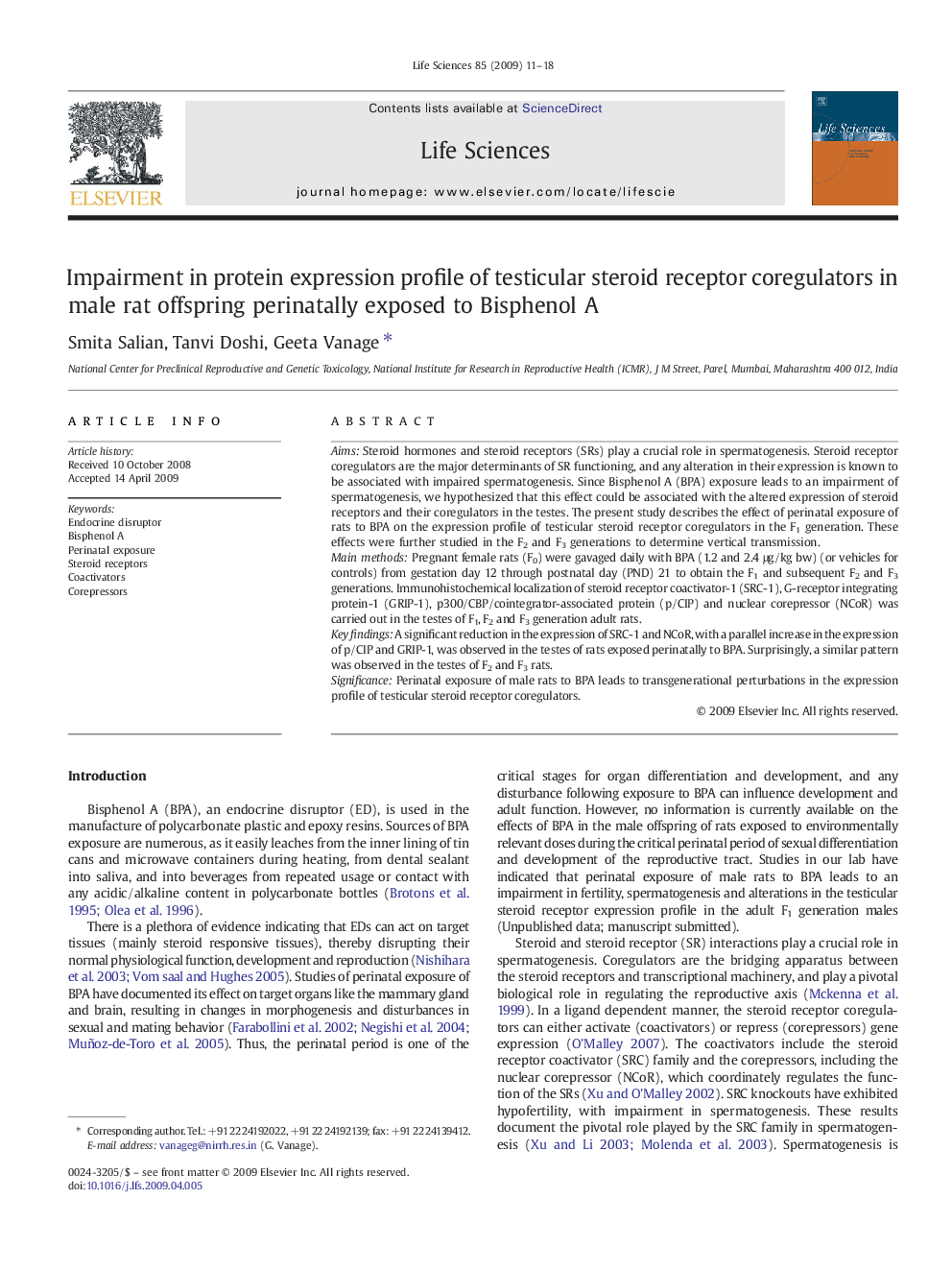| Article ID | Journal | Published Year | Pages | File Type |
|---|---|---|---|---|
| 2552388 | Life Sciences | 2009 | 8 Pages |
AimsSteroid hormones and steroid receptors (SRs) play a crucial role in spermatogenesis. Steroid receptor coregulators are the major determinants of SR functioning, and any alteration in their expression is known to be associated with impaired spermatogenesis. Since Bisphenol A (BPA) exposure leads to an impairment of spermatogenesis, we hypothesized that this effect could be associated with the altered expression of steroid receptors and their coregulators in the testes. The present study describes the effect of perinatal exposure of rats to BPA on the expression profile of testicular steroid receptor coregulators in the F1 generation. These effects were further studied in the F2 and F3 generations to determine vertical transmission.Main methodsPregnant female rats (F0) were gavaged daily with BPA (1.2 and 2.4 μg/kg bw) (or vehicles for controls) from gestation day 12 through postnatal day (PND) 21 to obtain the F1 and subsequent F2 and F3 generations. Immunohistochemical localization of steroid receptor coactivator-1 (SRC-1), G-receptor integrating protein-1 (GRIP-1), p300/CBP/cointegrator-associated protein (p/CIP) and nuclear corepressor (NCoR) was carried out in the testes of F1, F2 and F3 generation adult rats.Key findingsA significant reduction in the expression of SRC-1 and NCoR, with a parallel increase in the expression of p/CIP and GRIP-1, was observed in the testes of rats exposed perinatally to BPA. Surprisingly, a similar pattern was observed in the testes of F2 and F3 rats.SignificancePerinatal exposure of male rats to BPA leads to transgenerational perturbations in the expression profile of testicular steroid receptor coregulators.
